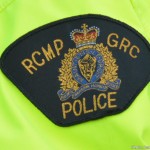Nova Scotia RCMP wants you to consider how much the life-long label of “impaired driver” would cost you.
Many people know that the most costly consequence of impaired driving is significant injury and loss of life. Many people also know that impaired drivers can face consequences including time in prison, severe fines and penalties, driving prohibition, license suspension and mandatory driver rehab. However, the consequences don’t end there.
“An impaired driving charge can cost you for the rest of your life in ways you’ve never even thought of,” says Cst. Chad Morrison of the Nova Scotia RCMP. “Having the label of ‘impaired driver’ attached to your name can cost you in everything from finances to future job prospects.”
Those found guilty of impaired driving can face a lifetime of loss, including:
-
Financial losses due to increased vehicle insurance costs
-
Loss of pride as you may be required to have a breath screening device installed in your car
-
Relationship losses as friends, family and significant others stop trusting someone who has put others at risk
-
Loss of jobs that require a driver’s license
-
Lost job prospects due to the charge appearing on criminal record checks
In an effort to protect Nova Scotians from the selfish decisions of impaired drivers, the RCMP will continue to enforce sober driving through strategic checkpoints in December and throughout the new year.
Sobriety testing
When someone is suspected of driving impaired, police will determine impairment through sobriety testing. Sobriety testing comes in a variety of forms, including roadside testing by an Approved Screening Device (ASD), Standardized Field Sobriety Test (SFST) and evaluation by a Drug Recognition Expert (DRE).
If you have consumed alcohol, police may demand you provide a roadside breath sample for assessment by an ASD. If you fail the ASD, you will need to provide more samples at a police detachment. If those samples exceed 80mg%, you may be charged with impaired driving.
If you have consumed alcohol, drugs or a combination of alcohol and drugs, a police officer may demand you take an SFST (a series of standardized tests).
If a police officer has reasonable grounds to believe that you have consumed drugs (including prescription drugs) or a combination of alcohol and drugs, they may demand you be evaluated by a DRE, a police officer specially trained to determine drug impairment. This can be done at a detachment. If you are found to be impaired, you could be charged with impaired driving.
Failure or refusal to participate in any type of sobriety testing may result in criminal charges that have the same penalties as impaired driving. Newly licensed drivers are subject to different requirements and are not permitted to consume any alcohol before getting behind the wheel.
Reporting impaired driving
If you suspect someone is driving impaired and they are an immediate threat to public safety, call 911.
If it’s safe to do so, make note of the following information, as it will help police respond:
-
license plate number
-
make and model of the vehicle
-
description of the driver
-
location of the vehicle and direction of travel
In Nova Scotia, drivers who operate a motor vehicle (regardless of whether it’s in motion) after consuming alcohol or drugs can expect severe fines and penalties, including a $1,000 fine for a first offence and a 12-month Canada-wide driving prohibition. There is also an immediate 90-day Nova Scotia license suspension if the driver is impaired by alcohol.
You can’t hide from the label of “impaired driver”. It follows you and haunts you throughout life. Don’t let a bad decision destroy everything you’re working toward.
.
Source: Media Release



